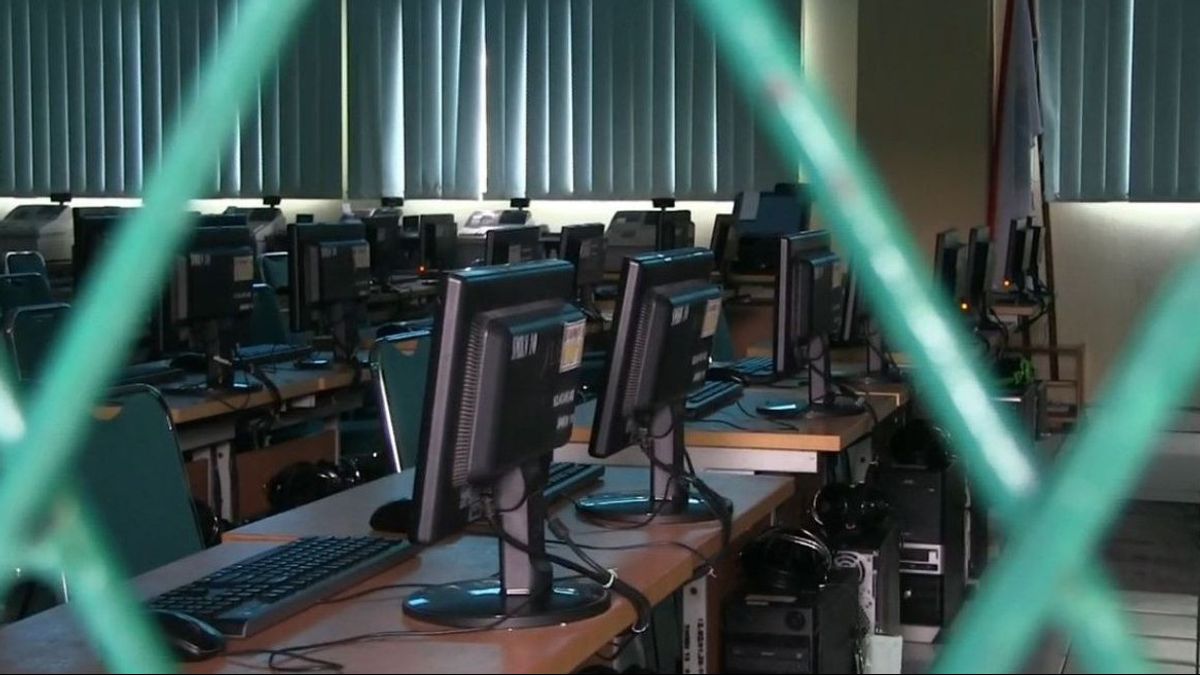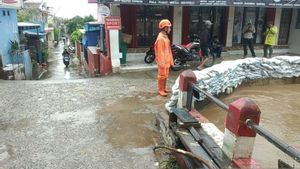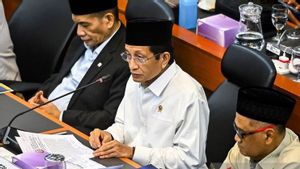JAKARTA - The DKI Jakarta Education Agency (Disdik) announced the percentage of students who passed the New Student Admissions (PPDB) zoning route for junior high and high school levels.
The route, which was opened on June 25 to 27, is given a 40 percent portion of the PPDB DKI for the 2020-2021 school year. The zoning route is a pathway for prospective students to choose schools based on the school zone in accordance with the prospective student's domicile.
Then, when there are two prospective students with the same residence and school distance, the selection for the fulfillment of the last quota will prioritize the older student's age. Parents of students protested this. They worry that their children will be defeated by older prospective students.
Responding to this, the Head of the DKI Jakarta Education Agency, Nahdiana, explained that the zoning route student admissions show that the number of older students who are accepted is still not more than young people.
The details, 7 high school grade 10 student candidates who passed with the oldest age were 20 years. The percentage is 0.06 percent. Meanwhile, the age of 18-20 years was 1.4 percent, age 17 years 6 percent, age 16 years 52.8 percent, 15 years 39.7 percent, and ages 13-14 years 0.2 percent.
The closure of registration for the zoning route shows that 92.4 percent of students in the normal age range, namely 15-16 years old for grade 1 high school, are accepted, "Nahdiana said in a written statement, quoted on Sunday, June 28.
As for students who are admitted to the Junior High School (SMP) level, 96.9 percent of normal ages, 12-13 years, are accepted. The distribution of enrollment for junior high school students, namely 14-15 years, is 2.8 percent, 29.6 percent 13 years old, 67.3 percent 12 years old, and 0.3 percent 10-11 years old.
Prospective junior high school level new students who were accepted for this year's zoning route were 31,011 students. Meanwhile, the number of prospective high school students accepted were 12,684 students.
Furthermore, Nahdiana explained, the zoning on the route was carried out based on the Permendikbud (Article 14 paragraph 1 and Article 16 paragraph 1,2 and 3) by ensuring capacity. Then, the derivative rule is Pergub Number 43 of 2019.
The zone in question is the grouping of schools based on location with reference to the criteria set by the Education Office. These criteria are a list of schools located in the same kelurahan or neighboring kelurahan with the domicile of the prospective student.
"The list of schools in a zone is determined by the DKI Education Agency based on the distance from the domicile urban village, the school capacity, and the population," he said.
There are 267 school zones in DKI Jakarta at each level of education. The zone has been implemented since 2017 without changing and is used every year, including in the 2020 PPDB.
"In the registration selection using the zoning route, the first stage selection is by limiting by school zone, the second stage is based on age, the third stage is the sequence of school choices, and the fourth stage is when registering," explained Nahdiana.
Prospective students who have not been accepted in the previous route can re-participate in the admission process through the academic achievement path with a 20 percent quota for residents of DKI Jakarta and 5 percent for residents outside DKI Jakarta which will be held on July 1-3 2020.
The main selection used in the Academic Achievement Pathway takes into account the average academic score for the last 5 semesters and the accreditation score of the original school.
Had ComplainedFor information, the provisions of the zoning route for DKI have complained about a number of parents of students. The association on behalf of the Movement for Mother and Father Cares for Education and Justice (Geprak) held a demonstration in front of the DKI City Hall Building to convey their rejection. However, the DKI Provincial Government ignored him.
Finally, the DKI DPRD tried to mediate by holding a meeting with representatives of parents of students and the DKI Education Office, some time ago. The meeting was tough. Representatives of parents of students complained about the technical instructions for school registration with a zoning system.
"We are questioning the age criteria on zoning. If this is the case, we will see, for example, later children are thrown (from public schools) because they do not qualify, then are forced to enter the private sector. However, the private sector has opened registration from before. It is not the time for children. we become experiments like this, "said one parent named Ratu Yunita Ayu, Wednesday, June 24.
It was the head of the DKI Education Agency, Nahdiana, to answer. Nahdiana admitted that the results of her study predicted that many younger children would not be admitted to public schools. However, he could not change these rules. Because, like it or not, there will definitely be prospective students who will be left out.
"DKI has formulated this from 3 years ago. We did not change this because it has settled. If your child enters, it will be selected again because those interested in public schools in the zone will return to their capacity. If the capacity is only a certain percentage, then logically it will be full. "That way, age is the choice," explained Nahdiana.
The DKI DPRD cannot do much to fulfill the wishes of parents by asking the DKI Pemprov to remove the age criterion in the zoning system. Member of Commission E DPRD DKI Jhonny Simanjuntak concluded that his party provides an opportunity for the DKI Provincial Government to implement the policies that have been made.
"After all, we DPRD as people's representatives have tried to convince the executive. But the Kadis (Nahdiana) mother asked to be given a chance. They will also be ready to evaluate the system," said Jhonny.
The English, Chinese, Japanese, Arabic, and French versions are automatically generated by the AI. So there may still be inaccuracies in translating, please always see Indonesian as our main language. (system supported by DigitalSiber.id)













